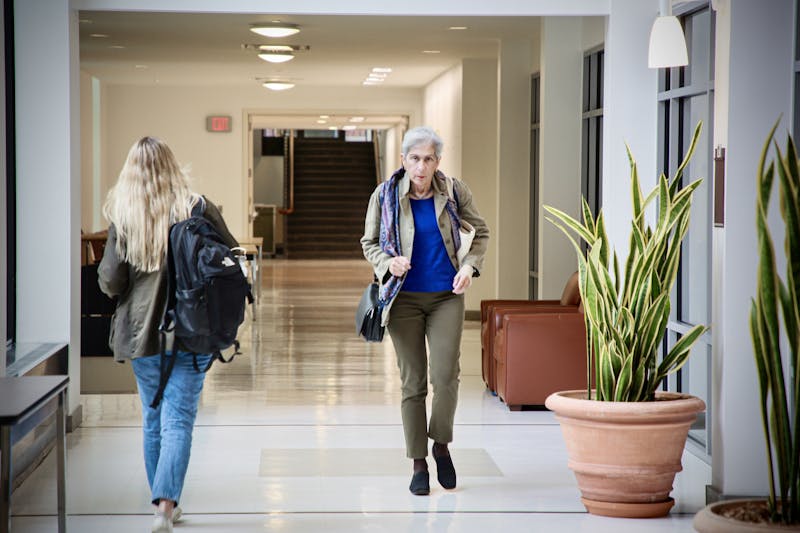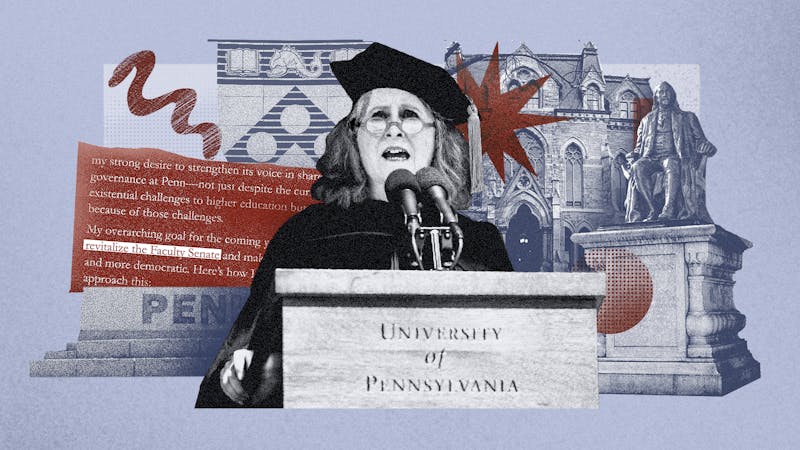It's the issue that never seems to be laid to rest. Once again, the Philadelphia Medical Examiner's Office and the University have been linked to dead bodies and missing brains. The medical examiner recently gave 38 bodies to the Graduate Hospital Imaging Center -- without first receiving consent from their families -- for temporary use in an experiment concerning new uses for medical imaging equipment. The new discovery comes at a time when the University and the city are being jointly sued in several cases involving the mishandling of brains. For the past two years, the University has been involved in six suits filed by the parents of deceased men and women who allegedly had their brains sent to the University by the city medical examiner without the families' consent. The brains in question were supposedly sent by the medical examiner to the University as part of an agreement between Deputy Medical Examiner Ian Hood and Professor Alan Rosenquist. Records from the suits indicate that 26 brains were sent from the medical examiner's office to the University Medical School between December 1990 and 1991. The brains were allegedly sent to the Medical School so students could study the brains and determine the causes of death. Dennis Abrams, attorney for the plaintiffs in the six suits, said the real victims in the brain lawsuits are the families of the dead. "Collectively my clients were very upset when they learned that their relatives' brains were taken without their permission to be used for educational purposes," Abrams said. "The courts will decide the cases, but my clients still feel like they've been violated." Abrams added that while the University shoulders much of the blame, the city medical examiner was also at fault. "They were willing and necessary participants," he said. Abrams said he believes the University's own Medical School "protocol" for its morgue involves getting consent before using the bodies of the deceased. University General Counsel Shelley Green said each case is different and deserves special attention. "We look at each case on its own merits and see if the University is involved," she said. And Assistant Director of Risk Management Ron Jasner said the cases will ultimately be decided by juries. "It depends upon what a jury says and we don't know what a jury will say," Jasner said. "Rosenquist assumed the medical examiner's office was not acting beyond its authority." In one of the brain suits, Albert Cave is suing on behalf of his son Herman Cave. The suit alleges that the use of the brains by the University without parental consent is a violation of the Uniform Anatomical Gift Act and the guidelines established by the University. Cave's suit alleges that he was not notified of his son's death by the medical examiner until six months after it occurred. "If the court chooses to ignore the grave implications of this case and dismiss the plaintiff's negligence claim, the medical examiner will once again have succeeded in hiding behind the mask of governmental immunity while he continues to trod on the rights and dignity of those people whom he is sworn to serve," Cave's complaint stated. The other suits have been filed by Emeline Buell, David Milliner, Louis Tavani and Leon White. Philadelphia Medical Examiner Haresh Mirachandani and Deputy Medical Examiner Ian Hood are also named as defendants in the cases. Buell's complaint states that Mirachandani, Rosenquist and the University acted "beyond the scope of their authority" in transferring the brains to the University. The University claimed in answering Buell's complaint that the Medical School was under the assumption that the transfer of brains was legal. In late August, the University was dismissed as a defendant in one of the brain cases filed against it. The suit, which was filed in March 1993 by Doris Jackson, claimed that her son's brain was removed without cause and without her consent and sent to the University. The case against the University was dropped when her son's brain was found intact after the body was exhumed. Abrams said he expects all the cases to be heard in court within a year's time.
The Daily Pennsylvanian is an independent, student-run newspaper. Please consider making a donation to support the coverage that shapes the University. Your generosity ensures a future of strong journalism at Penn.
DonatePlease note All comments are eligible for publication in The Daily Pennsylvanian.







